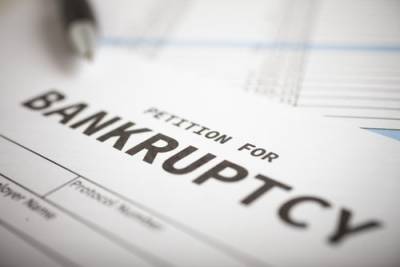How to Decide Between Chapter 7 and Chapter 13 Bankruptcy
 Do you have significant debts that you are struggling to repay? Are you constantly dealing with calls from creditors? Are you worried about losing your home or other property? These issues affect many Americans, and debt can become unmanageable for multiple reasons, including financial factors that are out of your control, such as losing your job or suffering an illness that led to large medical bills. In these situations, it is important to remember that you are not alone, and you may be able to use our country's bankruptcy laws to receive relief from your debts. However, there are typically two options when filing for bankruptcy -- Chapter 7 and Chapter 13 -- and understanding how to choose between them is not always easy.
Do you have significant debts that you are struggling to repay? Are you constantly dealing with calls from creditors? Are you worried about losing your home or other property? These issues affect many Americans, and debt can become unmanageable for multiple reasons, including financial factors that are out of your control, such as losing your job or suffering an illness that led to large medical bills. In these situations, it is important to remember that you are not alone, and you may be able to use our country's bankruptcy laws to receive relief from your debts. However, there are typically two options when filing for bankruptcy -- Chapter 7 and Chapter 13 -- and understanding how to choose between them is not always easy.
Weighing Your Bankruptcy Options
The primary difference between Chapter 7 and Chapter 13 bankruptcy is that Chapter 7 bankruptcy results in the liquidation of your assets, while Chapter 13 bankruptcy sets up a repayment plan for your debts. A Chapter 7 case can usually be completed fairly quickly, and it will allow multiple types of debts to be discharged after any non-exempt assets you own are seized and sold to pay off some of what you owe. A Chapter 13 case is often more complicated, and it will require you to make monthly payments for several years, although you will not be required to turn over any property.
As you determine which type of bankruptcy to pursue, you may want to consider the following:
-
How much money do you make? To qualify for Chapter 7, you must pass a "means test" that compares your income to the median income for a family of your size in your area. If the income you earn is above that amount after certain types of deductions are made, you will not be able to use Chapter 7, and you will need to opt for Chapter 13 instead.
-
Do you own non-exempt assets? If you pursue a Chapter 7 bankruptcy, you may be required to turn over some of your property. In Texas, the equity you own in your home will generally be exempt from liquidation, and you can also exempt one car for each member of your family, as well as certain other assets. However, if you own some valuable items that you do not want to lose, Chapter 13 may be the best choice for you.
-
Are you looking to avoid foreclosure or repossession? If you have defaulted on your mortgage, auto loan, or other loans, creditors may have begun proceedings to take possession of the collateral used to secure these debts. While Chapter 7 bankruptcy may eliminate your requirement to repay the amounts owed, it will not stop lenders from seizing the collateral. If you are looking to avoid the loss of your property, Chapter 13 bankruptcy may be the better option, and it may allow you to become current on payments toward these loans and ensure that you can maintain financial stability in the future.
Contact Our Dallas Bankruptcy Attorneys
Making the decision to file for bankruptcy is never easy, but it may be necessary if you are struggling with unmanageable debts. At Acker Warren P.C., our knowledgeable and experienced bankruptcy lawyers can evaluate your situation and help you determine whether Chapter 7 or Chapter 13 bankruptcy is right for you. We can also assist with every step of the bankruptcy process, from filing the initial paperwork to attending court hearings on your behalf. To schedule a free consultation with one of our attorneys, contact our Fort Worth bankruptcy lawyers at 817-752-9033 today.
Sources:
https://www.uscourts.gov/services-forms/bankruptcy/bankruptcy-basics/chapter-7-bankruptcy-basics
https://www.uscourts.gov/services-forms/bankruptcy/bankruptcy-basics/chapter-13-bankruptcy-basics









